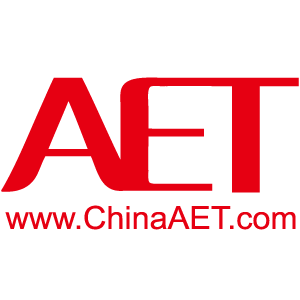兩年前的本月,特朗普政府將華為技術公司列入黑名單,阻止美國公司向我們出售制造智能手機和其他產品所需的技術組件。
緊隨其后的是其他限制措施,包括去年采取的一項行動,以防止華為從全球最大的半導體制造商臺灣半導體制造公司(TSMC)購買芯片。因為臺灣半導體制造商使用美國公司的設備制造其芯片。
美國政府之所以采取這些行動,是因為他們認為,作為一家中國公司,華為可能會被迫對美國電信網絡發(fā)起網絡攻擊,并有可能從事間諜活動。
網絡安全最近占據了新聞的主導地位。本月早些時候,美國總統(tǒng)喬·拜登簽署了一項旨在加強美國網絡防御的行政命令,此前勒索軟件攻擊關閉了美國最大的燃料管道已有數天之久。在去年,有黑客通過Microsoft Exchange和一家名為Solar Winds的IT公司對美國政府機構和私人公司進行破壞性攻擊。
如果拜登的行政命令導致美國政府對網絡安全采取更基于事實的方法,那將是一件好事。實際上,如果與美國重新接受全球競爭而不是繼續(xù)走向貿易保護主義相結合,該命令實際上可以使美國和中國受益。
如果拜登政府接受競爭,美國和中國的公司可以繼續(xù)走上一條通俗易懂的道路,在過去十年中加強了它們相互交織的經濟。但是,如果拜登總統(tǒng)僅在與美國的政治目標保持一致時才遵循特朗普的領導方式進行競爭,那么全球經濟將在經濟和技術脫鉤方面投入大量精力。
從短期來看,將美國的供應鏈與中國分離會傷害到一些中國公司,包括華為,由于黑名單,華為的海外收入去年有所下降。但根據美國研究機構Rhodium Group的調查數據,隨著時間的流逝,脫鉤將使美國損失約1900億美元的GDP損失。同時還會對美國半導體公司造成損害,因為這會導致他們的營收下降,并削減他們的研發(fā)投入。

不幸的是,損害還不止于此。根據經濟學人智庫的估計,如果中國與澳大利亞,加拿大,新西蘭,英國和美國這五眼聯盟之間的貿易完全脫鉤,全球經濟損失將超過50萬億美元。
甚至美國政府自己的國家情報委員會也警告說,將世界分割成幾個經濟和安全集團將帶阿里不菲的成本,包括“國家和公司的巨額財務損失,因為供應鏈破裂,市場損失,以及一旦利潤豐厚的部門,例如旅行和旅游業(yè)下降。”
美國方面并非真正與華為競爭,這使我們期望,美國政府選在對待總部位于美國以外的華為和其他全球科技公司上面,可能最終會有所改變。
我們了解到,美國政府正在忙于應對COVID-19,并試圖促進美國經濟。但是我們也希望,如果時間合適,他們會與我們交談。為了減輕他們對我們產品和技術的擔憂,我們準備接受最嚴格的控制。
我們愿意討論任何事情,包括在美國建立制造業(yè)務,開放華為設備進行獨立測試,或將第五代或5G技術授權給美國公司或財團。
美國可能希望考慮該公司的首席執(zhí)行官和創(chuàng)始人任正非提出的將華為的5G技術許可給一家美國公司的提議。該協議可能包括華為5G專利的全部或部分,包括軟件源代碼,與制造,網絡規(guī)劃和測試相關的硬件設計和技術。
有幾家美國公司可以采用此方法,可以合理地假設一兩個公司可能有興趣了解更多信息。但是,如果沒有美國政府的祝福,他們不太可能大聲疾呼。
通過與包括在中國的國際技術公司合作,美國在增強其全球技術領先地位方面處于有利地位。我們希望拜登總統(tǒng)不要像他的前任那樣將許多與中國有關的不同問題聚在一起,以討價還價,而是將這些問題分類,并根據其優(yōu)缺點進行審查。
共同努力的人們將建立更美好的未來。沒有公司或國家可以獨自做到這一點。盡管存在分歧,但美國和中國必須找到一種競爭與合作的方式。
附英文原文:Huawei to Joe Biden: Please talk to us
Two years ago this month, the Trump Administration placed Huawei Technologies on a blacklist that blocked U.S. companies from selling us the tech components we need to make smartphones and other products as well.
That restriction was followed by others, including a move last year to prevent Huawei from buying chips from the world's largest maker of semiconductors Taiwan Semiconductor Manufacturing Co. (TSMC), a Taiwan-based manufacturer whose chips are made with equipment from U.S. companies.
The U.S. government took these actions because it believes that as a Chinese company, Huawei could be forced to launch cyberattacks on American telecommunications networks, as well as provide Beijing with the ability to engage in espionage activity in the U.S.
Cybersecurity has dominated the news lately. Earlier this month U.S. President Joe Biden signed an executive order aimed at strengthening America's cyber defense following a ransomware attack that shut down America's biggest fuel pipeline for several days, as well as last year's damaging attacks on U.S. government agencies and private companies perpetrated through Microsoft Exchange and an IT company called Solar Winds.
If Biden's executive order leads the U.S. government to adopt a more fact-based approach to cybersecurity, that will be all to the good. In fact, the order could actually benefit both the U.S. and China -- if it is coupled with renewed American acceptance of global competition rather than a continuing slide toward protectionism.
If the Biden administration embraces competition, U.S. and Chinese companies can continue down a well-trodden path that has strengthened their intertwined economies over the past decade. But if President Biden follows Trump's lead in permitting competition only when it aligns with U.S. political aims, the global economy will extend its headlong rush into economic and technological decoupling.
In the short term, separating America's supply chains from China will hurt some Chinese companies -- including Huawei, whose overseas revenues declined last year as a result of the blacklist. But in time, decoupling will cost the U.S. an estimated $190 billion in lost GDP,“ according to U.S. research outfit The Rhodium Group. It will also hurt American companies' leadership in semiconductors and other technologies by shrinking their revenues and forcing them to cut R&D spending.
Unfortunately, the damage does not stop there. According to Economist Intelligence Unit estimates, a full decoupling of trade between China and the Five Eyes countries -- Australia, Canada, New Zealand, the U.K. and the U.S. -- would cost the global economy more than $50 trillion.
Even the U.S. government's own National Intelligence Council has warned that splitting the world into several economic and security blocs will impose extraordinary costs, including ”massive financial losses for countries and corporations, as supply chains fracture, markets are lost, and once lucrative sectors, like travel and tourism, decline.“
Washington's beef is not really with Huawei, but with China, a strategic competitor whose rise could threaten the economic and military primacy America has enjoyed for decades. Although U.S.-China relations may not thaw any time soon, it seems clear that the current administration is taking a more multilateral approach to the world than its predecessor did.
This gives us hope that there may eventually be a change in how the U.S. government chooses to treat Huawei and other global technology companies headquartered outside of the United States.
We understand that the administration is busy coping with COVID and trying to boost the U.S. economy. But we also hope that when the time is right, they will talk to us. To ease their concerns about our products and technologies, we are prepared to be subject to the most stringent controls.
We're open to discussing anything, including setting up manufacturing operations in the United States, opening Huawei's equipment to independent testing, or licensing our fifth-generation, or 5G, technology to a U.S. company or consortium.
Washington may want to consider the company's CEO and founder Ren Zhengfei's offer to license Huawei's 5G technology to an American company. The agreement could include part or all of Huawei's 5G patent portfolio, including software source code, hardware designs and technologies related to manufacturing, network planning and testing.
There are several U.S. companies that could take this on, and it seems reasonable to assume that one or two might be interested in learning more. But they are unlikely to speak up without the U.S. government's blessing.
America is in a strong position to enhance its global technology leadership by collaborating with international technology companies, including those based in China. We hope that instead of lumping together many disparate China-related issues for bargaining purposes, as his predecessor did, President Biden will disaggregate the issues and examine each one on its merits.
A better future will be built by people working together; no company or country can do it alone. The U.S. and China must find a way to compete and collaborate despite their differences.


